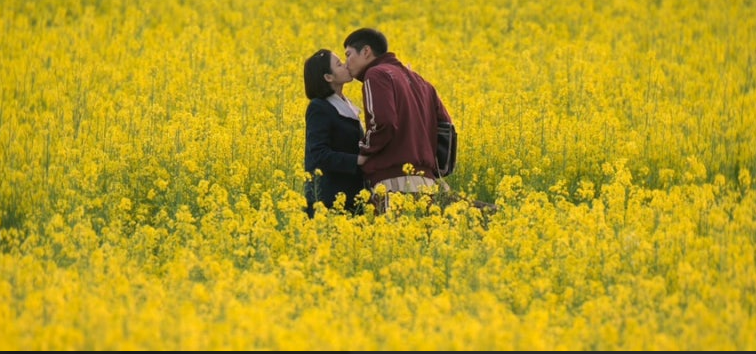
1. Plot Summary
"When Life Gives You Tangerines" chronicles the intertwined destinies of Ae‑sun and Gwan‑sik against mid‑20th century Jeju. Ae‑sun emerges as a fiercely independent poet, challenging patriarchal norms, while Gwan‑sik anchors her with steadfast loyalty throughout eras marked by poverty, social upheaval, and personal tragedy. Their narrative arc, extending over four seasons and sixteen episodes, captures moments of hope, sacrifice, and the quiet dignity of enduring love. :contentReference[oaicite:1]{index=1}
2. Jeju Island as a Living Canvas
Jeju transcends mere setting; it becomes a character in its own right. The series meticulously integrates local dialect, the haenyeo’s sea rituals, and rural austerity. Iconic landmarks—cypress forests, coastal cliffs, Seongsan Ilchulbong, and traditional fishermen’s villages—are shot with painterly composition, mirroring the protagonists’ emotional landscapes. The choice to film some sequences in non-Jeju locations underlines the production’s visual coherence over geographical accuracy. :contentReference[oaicite:2]{index=2}
3. Character Profiles – Depth & Transformation
Ae‑sun (IU/Moon So‑ri): A 'sassy root potato' in Jeju vernacular, Ae‑sun's arc from rebellious girl to reflective elder poet encompasses both emotional tenacity and linguistic authenticity. IU portrays her youthful boldness; Moon So‑ri adds layered pathos in her later years. :contentReference[oaicite:3]{index=3}
Gwan‑sik (Park Bo‑gum/Park Hae‑joon): Embodying the "iron" archetype, Gwan‑sik offers silent strength. His character evolves from young stoic longing to mature devotion, articulating profound love through action rather than dialogue. This dual portrayal underscores time’s imprint on emotional constancy. :contentReference[oaicite:4]{index=4}
Supporting Ensemble: Ae‑sun’s grandmother and mother offer matriarchal resilience; haenyeo villagers ground the drama in tradition; Bu‑Sang‑gil introduces social precarity through arranged love; Gwan‑sik’s shamanistic grandmother and supportive mother enrich the narrative’s cultural and moral fabric. :contentReference[oaicite:5]{index=5}
Gwan‑sik (Park Bo‑gum/Park Hae‑joon): Embodying the "iron" archetype, Gwan‑sik offers silent strength. His character evolves from young stoic longing to mature devotion, articulating profound love through action rather than dialogue. This dual portrayal underscores time’s imprint on emotional constancy. :contentReference[oaicite:4]{index=4}
Supporting Ensemble: Ae‑sun’s grandmother and mother offer matriarchal resilience; haenyeo villagers ground the drama in tradition; Bu‑Sang‑gil introduces social precarity through arranged love; Gwan‑sik’s shamanistic grandmother and supportive mother enrich the narrative’s cultural and moral fabric. :contentReference[oaicite:5]{index=5}
🔍 Scholarly Observations
- The title, derived from Jeju dialect meaning “thank you for all your hard work,” symbolizes resilience and communal respect in hardship. :contentReference[oaicite:6]{index=6}
- Embedded social realities—post-war stratification, economic precarity, and gendered labor—are woven subtly into personal narratives without didactic overtones.
- Director Kim Won‑seok and writer Lim Sang‑chun orchestrate a delicate balance of visual lyricism and emotional restraint, reminiscent of their earlier works like “My Mister” and “Cabbage Flower's Bloom.” :contentReference[oaicite:7]{index=7}
📌 In Conclusion
"When Life Gives You Tangerines" is a heart‑felt testament to enduring love, communal identity, and the quiet heroism of ordinary lives. Anchored in exquisite performances and culturally rich aesthetics, this series offers both emotional depth and cinematic elegance—earning its place among the most compelling Korean historical romances of its time.